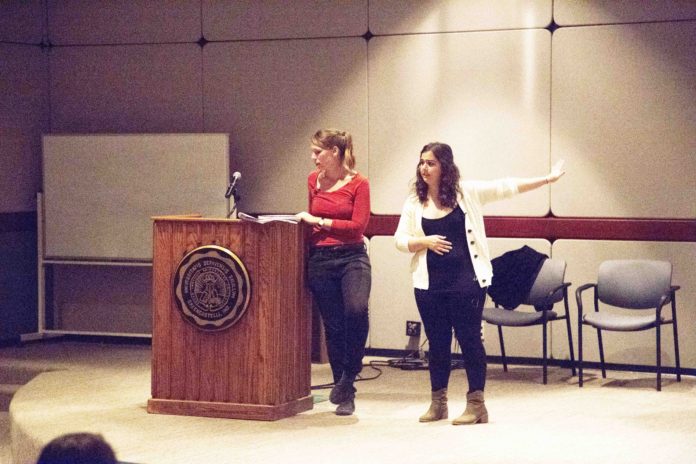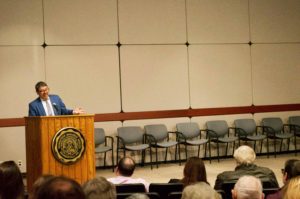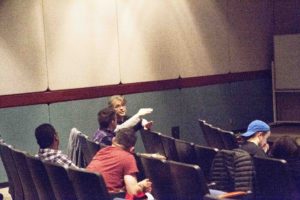
According to the study, “Disappeared: How the US Border Enforcement Agencies Are Fueling a Missing Persons Crisis,” U.S. Border Patrol has been using strategic opportunities to make immigrants “disappear” for over twenty years.
On Feb. 20, in Watson Forum, Alicia Dinsmoore and Sophie Smith, two volunteers for the humanitarian-aid organization No More Deaths, presented the first of three parts of a study about the US Border Patrol’s deadly apprehension practices along the Southern border.
The organizations La Coalición de Derechos Humanos, The Coalition of Human Rights, and No More Deaths partnered together to conduct this study about the abuse and disappearance of those attempting to cross sections of the over 650 miles of borders and walls that already exist along the divide between Mexico and the United States.
“This study really demonstrates the true cost of having walls and border militarization,” said Dinsmoore, who gives humanitarian aid to those who have recently been deported. “I really see the border wall and the border enforcement apparatus as part of a larger picture of US policy and domination throughout Mexico and the Americas.”
Smith works on a humanitarian project that gives aid to those in the desert who are attempting to cross the Mexico-US border. “I think our goal in with the report and the presentation is to show that walls are a deadly policing tactic,” Smith said. “This is sort of a street justice approach to enforcement as far as I’m concerned.”
Professor of history Glen Kuecker helped to organize the discussion. “It’s an argument from human rights positioning about what happens to undocumented migrants when they get detained and what happens to them in some of the processes that we have in the United States,” Kuecker said.
Prevention through Deterrence, a strategy employed by US Border Patrol beginning in 1994, uses the natural landscape in the south to heighten the risks associated with unauthorized entry. Additional tactics like “chase and scatter” are employed by officers when they ambush migrants and cause them to often become disoriented and injured. “We don’t condone using deadly policing tactics for the ‘crime’ of entering the US without papers, a nonviolent crime,” Smith said.
Just in 2015, over 1,200 cases were opened with La Coalición de Derechos Humanos for unaccounted people following an attempt to cross the southern border. “I’m a Latin Americanist. When we say ‘disappeared,’ that means something, something powerful, something deep,” Kuecker said. “When we start talking about the word ‘disappeared,’ in the context of the United States and our mechanisms of law enforcement, that sets a red line that we don’t cross as a nation and as a people.”
Smith believes that it’s utterly important to document these historical crimes and that the organizations have a duty to do so. “We believe this is a historical crime, and that’s part of why we’re using this language of ‘disappeared’ because this will be remembered as a terrible, shameful incident in US history,” Smith said. “We have an obligation to document it while it's happening.”
First-year Giselle Villegas found the topic of disappearance to be informative but also very poignant because of her own familial background; her father immigrated to the US when he was only seventeen. “Just seeing the struggles that he’s gone through being here, I don’t know, there’s just something that needs to be done,” Villegas said. “If we can be the voice for those that don’t have a voice, then why not be it?”
Dinsmoore hopes that as people continue to argue against building a wall that their reasoning strays away from solely financial concerns. “What we should be talking about is not how we should be building walls,” Dinsmoore said, “but how we should be making reparations and attempting to solve the violence that we already created.”




